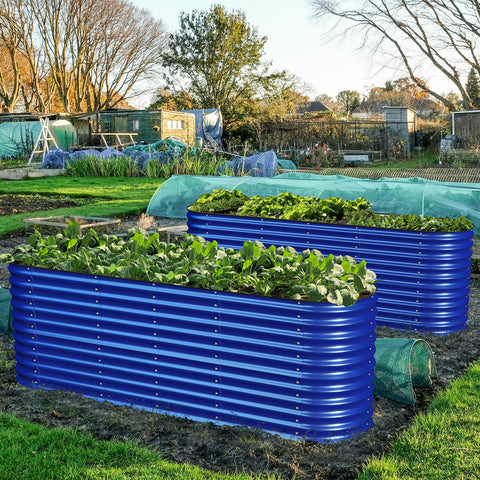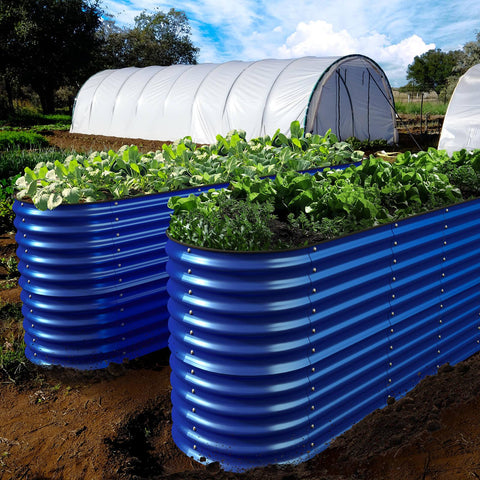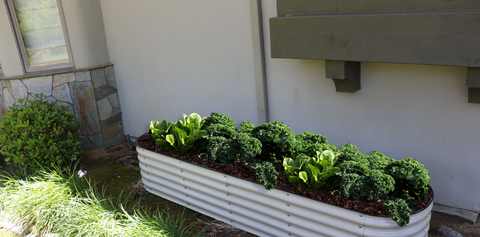Why Is The Cover Hard? 5 Simple Solutions from Olle Garden Bed
Covering is essential to your plant. It regulates soil water content and soil temperature, and improves plant health. However, if you don't care about the covering, it will harden or deteriorate faster than it should. Read here are some things that you should know when It comes to Olle Garden Beds!
The cover hardens in summer due to the heat generated by decomposition. Dry mulch is easily affected by fungal colonization, which makes it dusty, thick and fluffy. This effect can cause water to slide off rather than immerse in the mulch, putting your plant at risk of not being watered enough.
In this article, I will explain why your coverings become hard and give possible solutions. Coverage is not necessarily challenging or expensive. You just need to look for good tips.

Reasons for the stiffening of the covering
Covering is more than just placing organic or inorganic covering materials around your plants. It needs to regularly check and resolve any problems that arise.
- The covers are stacked too deep without turning
If you pile up too much and leave it for too long without flipping, your cover may harden. The covering will work under its weight and will be tightly squeezed together. Eventually, it becomes hydrophobic and deprives your plants of enough water.
The accumulated mulch will become hot due to decomposition during the summer peak period, leading to its drying. And you must replace it as soon as possible before the fungus colonizes it.
- Covering volcanoes
When you pile mulch too close to the base of perennials, mulch volcanoes can occur and may pose a risk to their health.
Place the mulch too close to the bottom of the plant, making it vulnerable to insects and rotting under excessive watering. If it does not rotate for a period of time, it will become hydrophobic.
- Use dyed covers
Some bagged coverings contain natural dyes, while others may be sprayed with colorants that are toxic to you and your pet. Some of these chemicals may be hydrophobic or hydrophobic when exposed to elements.
In addition, when they infiltrate into the ground, they are toxic to beneficial soil microorganisms that help maintain soil health.
- Use mulch mixed with soil
A good covering material should allow free passage of water. However, if the bag of mulch is full of soil, it will become dry. The soil in the mulch will take up a large part of the plant water consumption.
Remember that the plant root is under the mulch, not in the mulch.
Although you can improve the topsoil by mixing it with compost, the mulch should remain on top. Mixing mulch with soil will change the nutrient composition of the soil and deprive plants of much-needed minerals.
- Plastic cover exposed to sunlight
Plastic mulch is convenient for heating soil in spring and minimizing water loss in summer. However, it is more useful in shorter growing seasons.
Unfortunately, plastic coverings are not porous, making watering difficult. When exposed to hot summer, it will decompose and raise the soil temperature to dangerous levels.
When exposed to sunlight, it hardens and decomposes. Increasing the soil temperature will cause evaporation of water, causing the surface soil to harden.

Five methods to prevent the cover from hardening
Covering your garden will help your plants grow, but if you know some precautions for covering your garden, they will be healthier and more energetic.
- Not too much, not too little
Ideally, you should apply about 2-4 inches (50-100 mm) of mulch, not more. More than 4 inches (100 mm) of mulch is likely to damage plant roots.
If you use double wire or textured coverings, apply 1-2 inches (25-50 mm) of coverings. It tends to let less oxygen into the roots of plants.
Covering less than an inch (25 mm) high will be useless.
Although watering may become easier to manage, it does not prevent too much water from evaporating. Weeds can easily penetrate the mulch, just as you do not place any mulch around the plant.
- Mix and turn the cover
Mixing and flipping the mulch during each growing season should be a common practice to break loose clumps. It will ensure that the covering material does not form a compacted layer on the topsoil.
Take the following steps to flip the cover:
- Use a rake and a pair of gloves
- Rake your garden to break the hardened covering lump
- Turn over the covering near the seedlings by hand
- Replace the disassembled cover
- Try different covers
The covering has a variety of textures, such as pine straw, compost leaves, crushed hardwood bark, crushed rubber, plastic, etc.
Although you should always re cover your garden, if your previous cover hardens quickly, you can try a different one.
Different overlay textures will also give your garden a new look. You can try other options, such as dried cocoa bean shells, grounding palettes, seaweed, or nut shells.
- Avoid using bad covers
You may want to know what a good or bad covering is. The first step in obtaining a bad cover is to obtain it from an unreliable source. If it is full of poisonous weed seeds, you can pay the price in a difficult way. Bringing weeds into your garden is a big problem.
Aren't you afraid to waste all your energy removing foreign plants from the garden?
Also avoid using fresh coverings. Fresh mulch from pastures and dry pastures is likely to contain weed seeds and herbicide residues that may damage your plants. Let the fresh mulch stand for several months before covering the plants.
- Re coverage twice a year
If your existing coverings begin to thin, add more coverings. Re cover the garden twice a year, once in autumn and once in spring. However, if it fails in your hands, you should replace it.
Remember to keep the coverage within the recommended amount - the golden rule: not too much, not too little.

Taking good care of your mulch can keep your plants healthy and happy. If you find it hard, it's time to review your coverage practices.
Avoid piling too much covering material around the plant bottom to prevent the material from hardening. Recover your garden twice a year and replace the decomposed mulch, which will decompose like soil in your hands.
